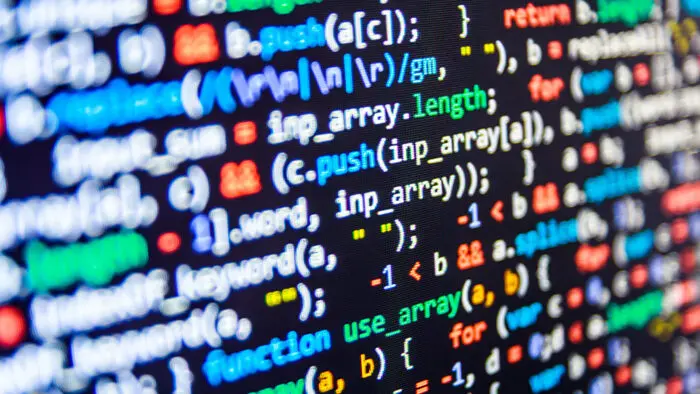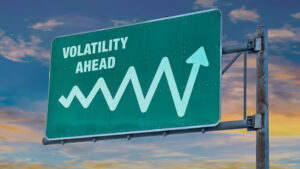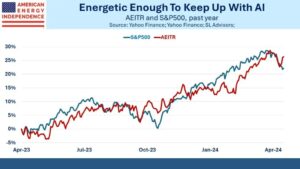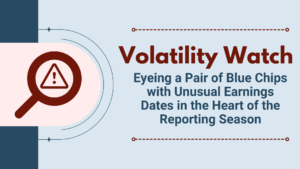In the 1950s, a scientist named M. King Hubbert proposed a “peak theory” for oil, in which he predicted US oil production would peak by 1970. He was almost right. US production did decline after 1970 and continued to do so through 2008. Advances in extraction technology ultimately proved him wrong,[1] but the story of limited and depleting resources was hardly new, and it wouldn’t be the last. More recently, some readers may remember the fear of corn supply (and animal feed) shortages in 2012 as the US promoted the increased use of ethanol in gasoline.
Today, the world is experiencing supply chain disruptions which result from a shortage of more than one limited resource. The inability to access shipping containers or find truck drivers to transport good from docks are two such examples. US cotton prices are skyrocketing as extreme weather has hurt cotton crops and China has been aggressively buying up supplies to get around tariffs. Wheat prices are increasing due to unusually low stock. Corn, copper and lumber prices have also risen sharply recently. There is a computer chip shortage as well. And a global energy crisis is unfolding. Energy prices by most measures have spiked: Natural gas prices are skyrocketing, pushing power producers around the globe to turn to oil, which in turn is driving up gasoline prices. Meanwhile, extreme weather has led to a coal shortage in China.
All of these resource constraints raise the question: Are we at peak everything? Maybe not literally, but we began wondering if the global economy is entering a new paradigm of more frequent resource shortages. Not all of these would be permanent or even indicative of a peak, and we may not see today’s confluence of disruptions for some time. But any one brings with it almost certain volatility and uncertainty and a risk of a contagion. At some point, the frequency of such events will make them norms rather than exceptions.
Unfortunately, some of these injuries may be self-imposed. For example, container shipping is a notoriously feast-or-famine industry. In our experience, a shortage of containers is often the result of an overreaction to a glut of containers in the past. Why? When demand for shipping is low, container manufacturing slows to a halt, and unused containers are retired and repurposed.[2] This results in an inevitable shortage of shipping capacity when global demand increases, usually tied to an economic rebound, which in turn triggers manufacturers to produce containers just in time for the next slowdown in demand. It’s a tale as old as time, and it’s not unique to shipping. We’ve seen the same cycle in the meat industry, as the gestation period of animals doesn’t always align with the ebbs and flows of demand for protein. This year, the issues with shipping containers are slightly different. The boom in global trade prior to the pandemic led to a large increase in supply of shipping capacity. However, the pandemic led to an unexpectedly poor distribution of containers globally, leaving a glut of unused containers in ports with no exports to drive demand. Whether due to a global demand shortage, as is typical, or a local one, as in 2020, the results were the same. Many containers were retired, sent to inland depots or stacked up at ports. The longer the global economy goes without returning to the pre-pandemic state of relatively unfettered access to ports, the more we would expect to see a continuation of shipping capacity constraints.
In either case, the reason for this feast-or-famine approach to the shipping industry is money.[3] There is a cost to house and maintain unused shipping capacity, along with the necessary supporting infrastructure; in a relatively low margin industry, this would impact profits in the short-term even a more balanced capacity strategy might be more consistent over the long-term. To be fair, not every company or industry has the luxury of spending now to avoid pain later. Farmers and ranchers, for example, are at the mercy of weather and demand when their perishable products are ready for market.
But, the UK’s current energy crisis, caused by a shortage of natural gas due to the retirement of natural gas containers, is a prime example of a failure to plan ahead due to a perception that the costs and effort required are unnecessary. Similarly, the seemingly tattered state of the global supply chain is the result of short-term thinking. This extends beyond shipping containers; just in The United States alone, companies responsible for transporting goods face poor roads, a lack of available labor or difficulty in finding raw materials. Moreover, some of their challenges are not new and could have been foreseen and addressed.
What we are describing is a breakdown in infrastructure. Unfortunately, policymakers cannot even agree on a definition for infrastructure, which appears to be a prerequisite for allocating any political and financial capital at all to addressing these issues. But the reality is that the infrastructure required to keep our economy humming along should be broadly defined and non-controversial. No business owner could make the case that an aversion to investing in employees through compensation, benefits or education makes the business more stable. Getting goods from one place to another is a complex logistical ecosystem, and that includes the truck drivers. Most importantly, and this is something that many forget, this infrastructure is an input to creating sustained and resilient profitability, not the other way around. Meanwhile, one cannot run an enterprise and be unconcerned about costs. Fiduciaries reading this letter may well feel this tug in their own work with clients, with short-term performance comparisons undermining risk management discussions focused on longer-term goals or outcomes. To them, it may come as cold comfort that they are not alone. Corporate America’s increasingly myopic focus on short-term results, enabled by investors with short-term performance comparisons and short-term attention spans unconcerned with risk, and the government’s inability to incentivize or require preferred longer-term outcomes has created a systemic “buy now, pay later” mindset in both good times and bad.[4] Sadly, this isn’t new. But, just as with the increasing frequency of resource shortages, it may now be the norm.
Those who advise clients to save for a rainy day, responsibly set aside reserves or plan for the unexpected may feel like they are swimming upstream more often than not in this current environment. After all, no one expects their roof to leak until it does, so why set aside funds for roof repairs when there are so many tempting ways to spend that money right now? Every day that passes without a leak, or even a rainstorm, causes one to question such decisions, especially when the neighbor pulls up in a new convertible. But it is never the case that people are unhappy when a downside surprise happens and they are prepared to handle it. This is the philosophy with which we manage portfolios at Zeo. We value consistency and stability and avoid getting caught up in the market’s “feast or famine” mindset.
In the case of the global economy, the leaks have been springing for years, but policymakers have been in denial. As the leaks get bigger, they have finally sprung into action… to place blame, or in some cases, to deny the existence of the water that is so clearly pooling up under their feet. We do not know how the current supply chain breakdowns or resource shortages will play out. We expect these sorts of disruptions to become more and more frequent, bringing with them a level of volatility and uncertainty the market has previously reserved for one-in-a-blue-moon events. We do know that changing a decades-old mentality will not be easy, and there will likely be much more volatility as we figure it out. It will require flexibility and empathy, and we will all feel some growing pains. And it will require being willing to plan ahead.
—
[1] Sort of. His timing may have been off, but it’s hard to argue that the planet can replace fossil fuels at the pace mankind is depleting them.
[2] Readers who live in areas with a particularly high concentration of hipsters can probably drive no more than a few miles before finding that hot new restaurant made out of old shipping containers.
[3] Are you really surprised?
[4] We mean this both figurately and literally. A quick internet search of the term “buy now, pay later” reveals the many attempts to rebrand an age-old business model under the guise of “fintech,” some with truly nauseating marketing pitches: “no deposit, no credit check”, “no late fees or surprises”, “it won’t affect your credit score”, “add extra convenience”. News flash: Just because there is an app doesn’t automatically make it less predatory.
Important Disclosure Information
Zeo Capital Advisors is a fundamental investment manager to a short-duration credit mutual fund, a sustainable high yield mutual fund and separately managed accounts. Venk is the Chief Investment Officer and founded Zeo Capital Advisors in 2009.
For more information contact Zeo directly at 415-875-5604 or visit www.zeo.com
Please remember that past performance may not be indicative of future results. Different types of investments involve varying degrees of risk, and there can be no assurance that the future performance of any specific investment, investment strategy, or product (including the investments and/or investment strategies recommended or undertaken by Zeo Capital Advisors, LLC (“Zeo”)), or any non-investment related content, made reference to directly or indirectly in this newsletter will be profitable, equal any corresponding indicated historical performance level(s), be suitable for your portfolio or individual situation, or prove successful. Due to various factors, including changing market conditions and/or applicable laws, the content may no longer be reflective of current opinions or positions. Moreover, you should not assume that any discussion or information contained in this newsletter serves as the receipt of, or as a substitute for, personalized investment advice from Zeo. To the extent that a reader has any questions regarding the applicability of any specific issue discussed above to his/her individual situation, he/she is encouraged to consult with the professional advisor of his/her choosing. Zeo is neither a law firm, nor a certified public accounting firm, and no portion of the newsletter content should be construed as legal or accounting advice. A copy of Zeo’s current written disclosure Brochure discussing our advisory services and fees is available upon request or at www.zeo.com/disclosures.
Disclosure: Zeo Capital Advisors
Please remember that past performance may not be indicative of future results. Different types of investments involve varying degrees of risk, and there can be no assurance that the future performance of any specific investment, investment strategy, or product (including the investments and/or investment strategies recommended or undertaken by Zeo ), or any non-investment related content, made reference to directly or indirectly in this article, will be profitable, equal any corresponding indicated historical performance level(s), be suitable for your portfolio or individual situation, or prove successful. Due to various factors, including changing market conditions and/or applicable laws, the content may no longer be reflective of current opinions or positions. Moreover, you should not assume that any discussion or information contained in this commentary serves as the receipt of, or as a substitute for, personalized investment advice from Zeo. A copy of the Zeo’s current written disclosure Brochure discussing our advisory services and fees continues to remain available upon request.
Disclosure: Interactive Brokers
Information posted on IBKR Campus that is provided by third-parties does NOT constitute a recommendation that you should contract for the services of that third party. Third-party participants who contribute to IBKR Campus are independent of Interactive Brokers and Interactive Brokers does not make any representations or warranties concerning the services offered, their past or future performance, or the accuracy of the information provided by the third party. Past performance is no guarantee of future results.
This material is from Zeo Capital Advisors and is being posted with its permission. The views expressed in this material are solely those of the author and/or Zeo Capital Advisors and Interactive Brokers is not endorsing or recommending any investment or trading discussed in the material. This material is not and should not be construed as an offer to buy or sell any security. It should not be construed as research or investment advice or a recommendation to buy, sell or hold any security or commodity. This material does not and is not intended to take into account the particular financial conditions, investment objectives or requirements of individual customers. Before acting on this material, you should consider whether it is suitable for your particular circumstances and, as necessary, seek professional advice.
Disclosure: Futures Trading
Futures are not suitable for all investors. The amount you may lose may be greater than your initial investment. Before trading futures, please read the CFTC Risk Disclosure. A copy and additional information are available at ibkr.com.












![[Gamma] Scalping Please [Gamma] Scalping Please](https://ibkrcampus.com/wp-content/smush-webp/2024/04/tir-featured-8-700x394.jpg.webp)
![[Gamma] Scalping Please [Gamma] Scalping Please](https://ibkrcampus.com/wp-content/uploads/2024/04/tir-featured-8-700x394.jpg)













